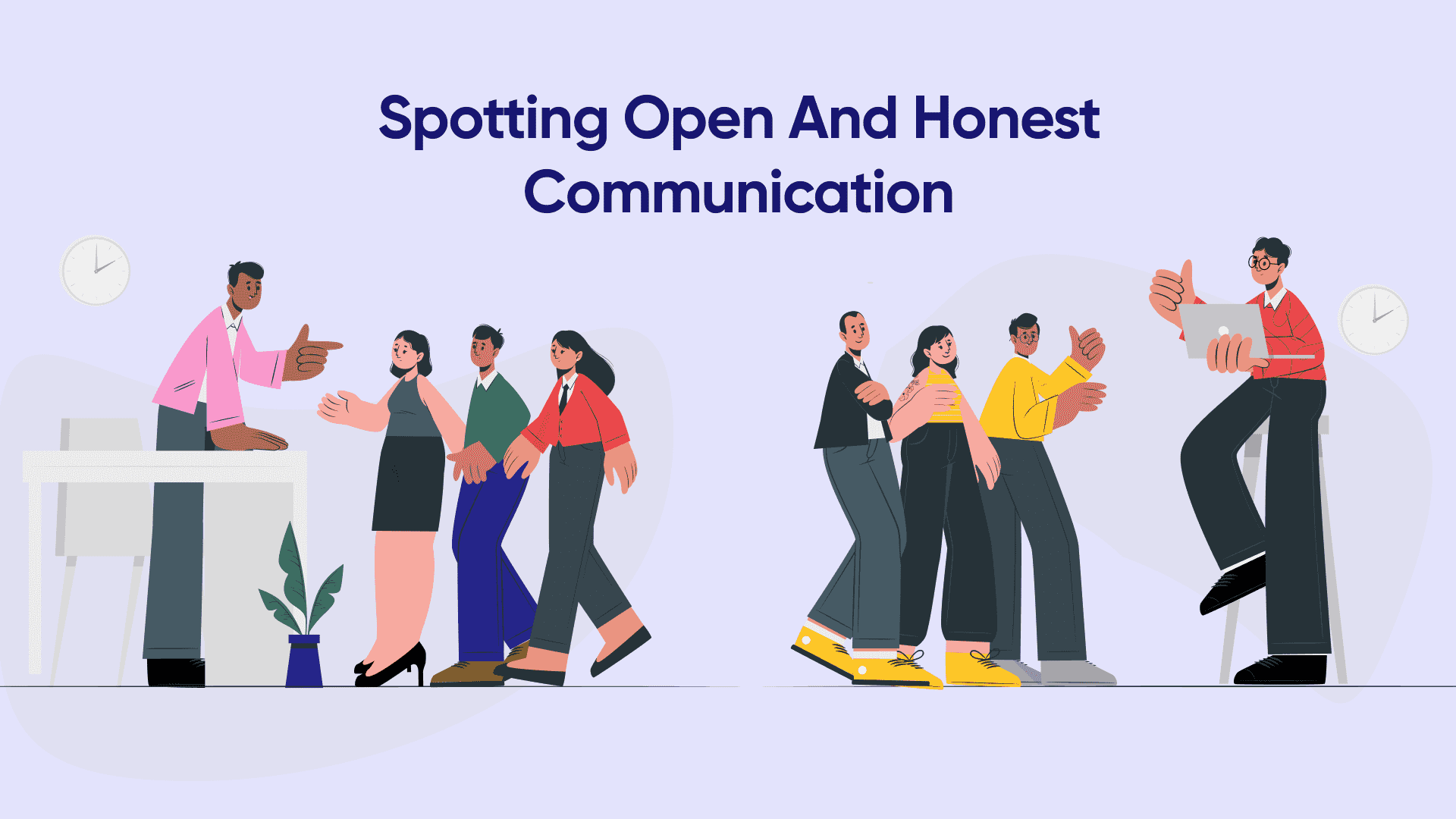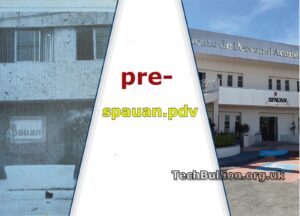Imagine you’re at a career crossroads. You’ve been presented with two tempting job offers. One promises thrill and excitement, while the other offers stability and growth potential. How do you choose? This scenario highlights the essence of acumen the ability to make sound judgments based on understanding complex situations. In this post, we’ll explore the concept of acumen, why it matters, and how you can nurture this vital skill in your life.
Defining Acumen: What Is It?
When you hear the term acumen, what do you think of? Most people associate it with intelligence. Yet, it goes beyond that. To understand what acumen truly means, we first consider its origins.
The Roots of the Word Acumen
The word acumen comes from the Latin word acumen, meaning sharpness or point. Just as a sharp tool can cut through material effectively, someone with acumen can navigate complex situations with precision and clarity. This concept brings us to an important question: How does this sharpness play out in real life?
Distinguishing Acumen from Intelligencer
It’s easy to confuse acumen with intelligence, but they are different. Intelligence often refers to cognitive abilities, such as logical reasoning and problem-solving skills. Acumen, however, is more about insight and practical judgment in specific contexts. Think of a savvy businessperson who makes quick, effective decisions in a meeting. This skill isn’t just about being smart; it’s about understanding the nuances of situations.
- Intelligence: Cognitive ability, logic, and problem-solving.
- Acumen: Insightful decision-making and situational awareness.
Real-World Examples of Acumen in Action
Consider a seasoned chef who can sense when a dish needs seasoning without tasting it. Or, think of a financial analyst who can assess market trends instantly. Their experience allows them to trust their intuition. Acumen is often about applying knowledge in practical scenarios. When you have that skill, you can make better choices in your profession.
How Acumen Relates to Emotional Intelligence
Emotional intelligence (EI) and acumen are interconnected. EI involves understanding your emotions and those of others. A person with a high EI can read the room during critical discussions. This clarity often leads to strategic decision-making. In a workplace, emotional acuity can enhance teamwork and cooperation. How can one improve this aspect?
The Role of Experience in Developing Acumen
Ah, experience is the cornerstone of acumen. The more situations you face, the sharper your acumen becomes. You’re likely to rely on past experiences to inform your future decisions. This is why mentoring is so vital. A mentor shares insight gained from a rich tapestry of experiences.
Acumen Across Various Professions
Every profession merits its kind of acumen. Consider:
- Doctors use acumen to make quick health assessments.
- Sales representatives must gauge customer moods accurately.
- Teachers rely on acumen to adapt lessons based on student engagement.
In each case, acumen isn’t just beneficial; it’s often necessary for success.
Impacting Career Choices and Organizational Success
Understanding acumen is crucial for your personal development and your company’s success. A study highlighted that professionals with high acumen are 30% more effective in decision-making. Companies that make acumen a priority see a 20% increase in productivity. Don’t you want to be part of that success?
“Acumen is about seeing the whole picture, not just the parts.” John Doe
Visualizing Acumen’s Impact
Let’s break down the numbers for clarity:
| Aspect | Impact |
| Decision-Making Effectiveness | 30% increase for high acumen professionals |
| Productivity | 20% increase for companies prioritizing acumen |
Now that you know what acumen entails, how will you approach your career journey with this insight?
Why Your Acumen Matters in Decision Making

Understanding Acumen
What is acumen? Simply put, it’s the ability to make good judgments. In business, this means making effective decisions quickly. Not every choice can be made with extensive research. Sometimes, you need to rely on instincts. That’s where acumen comes in. It acts as your internal compass, guiding you to success.
How Acumen Influences Business Success
Enjoyable and effective decision-making is a catalyst for growth. Think about it: when leaders possess sharp acumen, they tend to make decisions that positively impact their organizations. Just imagine a business making choices that lead to better productivity, customer satisfaction, and, eventually, higher profits.
- A study showed that organizations led by individuals with high acumen often outperform their peers.
- Can you think of a time when a quick decision saved your project?
Case Studies of Successful Leaders Demonstrating Acumen
There are countless examples of leaders who embody strong acumen. Take Indra Nooyi, the former CEO of PepsiCo, as one case in point. She navigated the company through significant market shifts by leveraging her ability to understand consumer trends.
Or consider Elon Musk. His quick, yet calculated, investment decisions have propelled several companies to success. These individuals show us that acumen is not just about making decisions; it’s about making the *right* decisions under pressure.
The Direct Correlation Between Acumen and Risk Assessment
Risk is a part of business. But how do you manage it? Acumen plays a crucial role. When you have strong acumen, assessing risks becomes more intuitive. You can weigh potential losses against gains, allowing you to make choices that minimize downside effects.
Think about the last time you had to gauge risk. Were you overly cautious, or did you trust your instincts? That instinct is a reflection of your acumen.
Acumen’s Impact on Communication and Persuasion
Effective communication is key to success. Strong acumen allows you to tailor your message to your audience. This skill increases your persuasion. For instance, a business leader with high acumen can present ideas in ways that resonate with team members, making them more likely to support new initiatives.
Have you noticed how some people can sway a room with just a few words? That’s acumen in action.
Identifying Gaps in Personal Acumen
We all have areas for improvement. How do you identify your gaps in acumen? Start by reflecting on your past decisions. Were there moments where you felt uncertain? Did you struggle to communicate your ideas effectively? Asking these questions can help pinpoint where you might need to grow.
- Reflect on decisions made over the past year.
- Seek feedback from peers or mentors.
- Invest time in learning about market trends relevant to your field.
The Broader Implications for Teams and Organizations
Your acumen affects not just you, but your entire team. When team members exhibit good acumen, the organization flourishes. A group of sharp thinkers can challenge each other, fostering innovation and resilience.
In contrast, a lack of acumen can lead to poor decision-making. Consider the repercussions of disjointed teams where decisions are made in haste or without sufficient information.
Acumen is the Backbone of Decision-Making
At its core, *acumen* is the backbone of effective decision-making. It enables quick, informed choices, especially under pressure. As you develop your acumen, you’ll likely notice an improvement in your leadership capabilities. You’ll be better equipped to handle challenges and communicate effectively with your team.
| Key Elements | Importance |
| Influences Business Success | Drives better productivity and profits |
| Risk Assessment | Helps in weighing potential gains and losses |
| Communication Skills | Enhances persuasion and overall leadership |
| Team Implications | Drives collective innovation and resilience |
Developing Your Acumen: Practical Steps

Engaging with Diverse Perspectives
Have you ever noticed how a different point of view can change everything? Engaging with diverse perspectives not only broadens your understanding but also sharpens your acumen. Try stepping into someone else’s shoes and seeing the world through their eyes.
Think about this: when you interact with people from different backgrounds, cultures, or professions, you gather insights that you might not encounter in your usual circle. You may discover new ideas, practices, or approaches that can significantly impact your thinking. Why limit yourself to just one way of seeing the world?
Learning from Your Mistakes and Observations
We all mess up sometimes. The key is to learn from these mistakes. Each failure carries a lesson. Have you ever considered what your errors might be teaching you?
- Reflect on what happened.
- Identify what you could have done differently.
- Apply these lessons to future situations.
It’s all about observation. Pay attention to decisions around you both yours and others. Think of yourself as a detective piecing together experiences to build better judgment.
Practicing Critical Thinking Daily
Critical thinking isn’t just for philosophers or academics. It’s a skill you can practice every day. Start by asking yourself: why do I think this? What evidence do I have?
Try this simple exercise:
- Pick a news article. 2. Analyze its claims. 3. Explore the counterarguments.
This practice sharpens your thinking and helps you form well-rounded opinions. Remember, critical thinking is like a muscle; the more you work it, the stronger it becomes.
Identifying Mentors Who Exemplify Strong Acumen
Do you have someone in your life who inspires you? Mentors can play a crucial role in developing your acumen. They can continuously challenge you and encourage you to step out of your comfort zone.
Find individuals who have shown exceptional judgment in their fields. Maybe it’s a manager, a professor, or even a family member. Ask them questions. Learn from their experiences. This can be incredibly helpful in your personal and professional growth.
Incorporating Continuous Learning
Learning shouldn’t stop after school. It should be a lifelong pursuit. How do you stay updated in your field? Whether it’s through reading, attending workshops, or taking online courses, make learning a habit.
- Subscribe to industry newsletters.
- Join online forums or groups.
- Read books related to your interests.
Consistency is key. The more you invest in your learning, the sharper your acumen will become.
Evaluating Your Decision-Making Patterns
Ever thought about how you make decisions? Evaluating your decision-making patterns can reveal a lot about your thought process. Ask yourself:
- What criteria do I use?
- Are my decisions based on emotion or logic?
- Do I rely on gut feelings too much?
Gaining clarity on your approach to decision-making helps you to avoid pitfalls. Awareness translates into better choices.
“Growth happens outside of your comfort zone; embrace it.” Jane Smith
Implementing these practices can be essential in your journey of nurturing your acumen. Remember, this doesn’t happen overnight. It requires effort and dedication. Every small step counts. So, are you ready to take control of your acumen? Your future self will thank you.
In the end, developing acumen is a lifelong journey. It benefits from various practices, commitments, and learning experiences. Nurturing it requires consistent effort, and mentorship plays a key role in enhancing personal skills.
The Interplay of Acumen and Experience

Ever wondered how your experiences can shape your acumen over time? It’s a fascinating journey. As you navigate through different situations, decisions, and challenges, your acumen and the ability to make good judgments grow. But how exactly does this happen?
How Experiences Shape Your Acumen Over Time
Think about your early job days. You probably made plenty of mistakes. From communication blunders to project mismanagement, each slip taught you something vital. Over time, these lessons accumulated. They didn’t just shape your approaches; they changed how you think. You became more strategic.
Your everyday experiences form the backbone of your acumen. Each interaction, whether positive or negative, can deepen your understanding and refine your decision-making skills. It’s not a mere line; it’s more like a web, continuously evolving and expanding.
The Importance of Self-Reflection
But there’s more to it. Simply experiencing events isn’t enough. You need to reflect on them. Why did a project succeed? What could have been done differently? Self-reflection allows you to analyze your experiences critically. It’s like having a mirror. You see your strengths and weaknesses more clearly.
Ask yourself: Are you making the most out of your experiences? By taking a moment to think back, you can identify patterns in your behavior and decision-making. Without reflection, experiences can become lost opportunities.
Integrating Failures into Your Learning Process
Failure is often viewed negatively, but in the learning arena, it’s a gem. When things go wrong, they reveal crucial insights. You learn what doesn’t work, which is often more valuable than knowing what does.
- Recognize your mistakes: Acknowledge them without fear.
- Analyze why: What led to this outcome?
- Make adjustments: How can you change your approach next time?
This cycle of failing, learning, and adapting strengthens your acumen. It’s a powerful reminder that each misstep is a stepping stone towards your growth.
Anecdotes of Professionals Transforming Their Careers Through Experience
Consider the story of a well-known executive who started in the mailroom. Through years of hard work and consistent learning from every task, they progressed through the ranks. Each role brought unique challenges, allowing them to refine their skills further. Their experiences were a continuous learning process that ultimately shaped them into a successful leader.
The Tipping Point: When Experience Catalyzes Acumen
There comes a moment in every professional’s journey when their accumulated experiences transform into something greater acumen. This tipping point can feel transformative. You see the bigger picture. You make decisions with confidence. You can assess environments quickly and respond effectively. It’s like flipping a switch. Everything you have learned begins to align.
Mistakes as Learning Opportunities
Every error holds a lesson, just waiting to be unraveled. Have you ever heard the phrase, “If you’re not making mistakes, you’re not trying hard enough?” This mindset is crucial for growth. Mistakes should be embraced as part of the learning process rather than feared.
Reframing your thinking about mistakes changes the landscape of your career. Instead of seeing them as failures, view them as opportunities in disguise. They push you to reevaluate your strategies and encourage innovative solutions. Isn’t that exciting?
In essence, experience catalyzes deeper understanding, while reflection ensures you truly gain from those experiences. Don’t underestimate the power of taking a step back and looking at your journey it’s where real growth begins.
Common Misconceptions About Acumen

Are you struggling to understand what acumen truly means? You’re not alone. Many people hold misconceptions about acumen, thinking it’s an exclusive trait meant solely for leaders or a sign of expertise. What if I told you that acumen is a skill that anyone can develop? Let’s break this down.
1. Acumen is Not Just for Leaders
One of the biggest myths about acumen is that it’s a quality only leaders possess. Do you think that only CEOs or managers need acumen? Think again! Acumen can benefit everyone, no matter their current role. Whether you are an entry-level employee or a seasoned professional, developing acumen helps inform your decisions and enhances your ability to assess situations.
2. Mistaking Acumen for Expertise
Another common misconception is that acumen equates to expertise. While expertise includes deep knowledge of a particular area, acumen is broader. It involves *practical decision-making* and the ability to apply knowledge in various contexts. You might be an expert in your field but still lack the acumen to make the right decisions under pressure. Are you clear on the difference? If not, you might be limiting your potential.
3. How Misconceptions Can Hinder Growth
Misconceptions can block your growth journey. When you believe acumen is reserved for a select few, you may skip pursuing opportunities to develop this essential skill. This can lead to missed chances in your career. It’s crucial to recognize that anyone can learn acumen through practice and experience. Have you ever felt you didn’t belong in a certain situation? That’s a sign these misconceptions are at play, holding you back.
4. The Societal Biases that Impact Our View of Acumen
Society plays a role in our understanding of acumen. Cultural biases often lead us to view certain traits as more valuable based on status or position. This is limiting, as it reinforces the idea that only high-ranking individuals can possess acumen. Have you ever thought that someone was smart just because of their title? This bias can cloud your judgment, preventing you from appreciating the acumen in those around you. Everyone regardless of title has something to offer.
5. Clarifying the Relationship Between Acumen and Knowledge
Some people confuse acumen with mere knowledge. Knowledge is *theoretical*; acumen is *practical*. You may read every book on leadership but still struggle in real scenarios. Think of acumen as a bridge that connects knowledge to action. To enhance your acumen, you must apply what you learn. Is your current learning style preparing you for real-world decisions?
6. Debunking Myths Surrounding Emotional Intelligence
Emotional intelligence is often intertwined with acumen, leading to more myths. Some believe that having emotional intelligence alone means you possess acumen. While emotional intelligence is a valuable trait, it does not guarantee decision-making ability in unexpected situations. You can be emotionally intelligent but may still falter when faced with complex business decisions. True acumen requires combining emotional intelligence with critical thinking.
Addressing these misconceptions about acumen is important. Understanding that acumen can be developed empowers more people to actively pursue their growth. Recognizing societal biases enhances your personal development efforts. As the saying goes, “Many people think acumen is an innate skill reserved for a select few, but it can be cultivated by anyone willing to learn and grow.”
Next time you find yourself doubting your acumen, remember the power of your choices. The journey to developing acumen is open to everyone, and it’s about time we embrace that fact.
Acumen in Team Dynamics: A Collaborative Effort

Have you ever wondered why some teams shine while others struggle? The secret often lies in the concept of *acumen*. This term refers to the ability to make good judgments and decisions in a specific domain. In team dynamics, acumen can hugely impact performance. Here’s how it works and why it matters.
1. How Acumen Impacts Team Performance
When a team has a high level of acumen, it navigates challenges more effectively. Imagine a group tackling a complex project. If everyone understands their role and how to contribute, things flow smoothly. In contrast, a lack of acumen can lead to confusion, mistakes, and missed deadlines. Why is this important? Well, teams that function well often enjoy higher morale and better results.
2. Strategies for Fostering Acumen Within Teams
Building acumen is not an overnight process. It requires effort and intention. Here are a few strategies you can implement:
- Encourage Continuous Learning: Regular training or workshops can enhance skills.
- Promote Reflection: After projects, discuss what went well and what didn’t.
- Set Clear Goals: Ensure everyone knows the team’s objectives and individual roles.
Each of these tactics nurtures an environment where acumen can thrive.
3. The Role of Diverse Skill Sets in Enhancing Group Acumen
Diversity isn’t just a trend it’s key to acumen. A group with varied skills can tackle problems from multiple angles. Think about it; if one team member excels in analytics and another in creativity, they can create more comprehensive solutions together.
Research shows that teams with diverse skill sets are often more innovative. It’s like having several instruments in an orchestra; together, they create beautiful music.
4. Facilitating Open Communication to Build Acumen Collectively
Communication is the backbone of any successful team. If there isn’t an open dialogue, misunderstandings arise. Regular check-ins and feedback sessions can help keep everyone on the same page. Ask your team how they feel about the project’s progress. Small adjustments can lead to big improvements. Remember, a symphony plays best when everyone can hear each other.
5. Case Studies of Successful Teams Leveraging Collective Acumen
Some companies serve as shining examples. Consider a tech startup that transformed its operations. By creating a culture of collaboration and trust, they managed to do what many thought impossible releasing a product months ahead of schedule. Their secret? Team members worked together, shared insights, and leveraged their collective acumen.
Another example could be a sports team that, despite having less talent overall, consistently outperforms more skilled rivals. Why? Their acumen in strategy, communication, and trust allows them to play as a cohesive unit.
6. The Connection Between Trust and Effective Decision-Making
Trust is essential for acumen to flourish. Why? When team members trust each other, they’re more likely to share their thoughts and ideas. This openness leads to better decision-making. Imagine a team where everyone feels valued and heard. They’re more willing to take risks and innovate.
Consider this: strong teams don’t just follow orders. They discuss, debate, and decide together. This active participation boosts collective acumen.
When teams prioritize the development of group acumen, they open doors to innovative solutions and enhanced performance. Ultimately, fostering a culture that values acumen can reshape how teams operate. Do you think your team’s dynamic could benefit from this approach?
FAQ: Common Questions About Acumen
Understanding acumen can sometimes feel like solving a puzzle. It involves sharpness of mind, quick judgment, and the ability to see patterns. But what exactly does it mean? Here, we’ll tackle some of the most common questions about acumen. Grab a seat, and let’s simplify this concept for you.
1. What are the core skills that constitute acumen?
Acumen consists of several key skills, including:
- Analytical Thinking: The ability to break down complex information into manageable parts.
- Decision-Making: Making informed choices quickly and effectively.
- Problem-Solving: Generating solutions when challenges arise.
- Critical Thinking: Evaluating arguments and identifying logical fallacies.
- Intuition: Trusting your instincts, especially in uncertain situations.
These skills, combined, form a solid foundation of acumen. They are like the gears of a well-oiled machine.
2. How long does it take to develop acumen?
This question often comes up: how long does it take? Well, there’s no set timeline. Developing acumen depends on various factors, such as:
- Experience: The more situations you face, the more you learn.
- Reflection: Taking time to think about your decisions aids your growth.
- Mentorship: Learning from others can speed up the process.
Think of it like planting a tree; some grow quickly, and others take time, but patience and care will yield results.
3. Can acumen be improved after mid-career?
Absolutely! Many people believe that you learn all you need early on in your career. But that’s far from the truth. You can always enhance your acumen, no matter your stage in life. Here’s how:
- Continuous Learning: Consider taking courses or attending workshops.
- Networking: Surround yourself with knowledgeable individuals.
- Seeking Feedback: Constructive criticism can help you grow.
Remember, it’s never too late to sharpen your edge.
4. What if my acumen isn’t strong?
Many have been where you are. If your acumen isn’t strong, don’t fret; it can be built. Here are some tips to help you:
- Identify Weak Areas: Understand what skills need improvement.
- Create a Learning Plan: Set achievable goals to increase your knowledge.
- Practice Regularly: Engage in activities that challenge your thinking.
Consider this: Just like athletes train to improve their performance, you can train your mind. Focus on small steps.
5. How does industry experience affect acumen?
Industry experience plays a significant role in developing acumen. Why’s that? Because:
- Exposure to Real Scenarios: Experience allows you to face real challenges.
- Understanding Trends: You learn what works and what doesn’t over time.
- Building Relationships: Networking with industry leaders provides insights.
Consider it a teacher; every job has lessons that enhance your acumen.
6. Is acumen more valuable than raw intelligence?
Ah, the classic debate! Raw intelligence is important, but acumen is often seen as more valuable in the workplace. Here’s why:
- Execution: Acumen helps you turn knowledge into action.
- Adaptability: It allows you to navigate unpredictable situations.
- Pragmatism: Acumen emphasizes practicality over mere theoretical concepts.
Intelligence gives you the tools, but acumen is about knowing how to use them.
Being aware of these aspects can empower you. They help you to demystify acumen and offer actionable insights for personal growth. With your newfound knowledge, you can nurture and develop your acumen effectively.
Conclusion: Your Path to Enhanced Acumen
As we wrap up the discussion on acumen, let’s take a moment to summarize the key points we’ve covered. We explored what acumen is, why it matters, and how it can significantly impact your life and career. Remember, acumen isn’t just a buzzword. It’s a tool that you can sharpen and use to make better decisions every day.
Encouraging personal growth is vital. Whether you’re a seasoned professional or just starting, reflect on your own acumen journey. What areas do you need to enhance? Maybe it’s analytical thinking or emotional intelligence. A simple exercise you can try is journaling about your daily experiences and decisions, identifying moments that require good judgment.
The Importance of Everyday Acumen
Making acumen a part of your daily life is crucial. Think of it like exercising a muscle. If you don’t use it, it weakens. Embracing acumen in your routines can lead to more insightful choices. You’ll find that the more you practice, the stronger and sharper your acumen becomes, shaping how you approach challenges and opportunities alike.
Transformative Power of Acumen
Final thoughts on the transformative power of acumen reveal its potential to change not just your career path, but your personal life, too. Consider this: what if your decisions today could lead to a promising future tomorrow? That’s the power of well-honed acumen. You can make informed choices, but it starts with you.
Setting Realistic Acumen Goals
Looking ahead, setting realistic acumen goals is key. What do you want to achieve? Is it honing your negotiation skills or understanding market trends? Write these goals down. Make them specific and measurable. This way, you can track your progress and stay motivated.
A Call to Action for Readers
Finally, here’s a call to action for you. Commit to nurturing your acumen. Start integrating exercises that challenge your thinking patterns. Attend workshops, read books, or engage in discussions that inspire growth. By committing to this path, you pave the way for more insightful choices in your career and life.
Reflect on your acumen journey. Each small step you take can foster continuous improvement. You’re empowered to take tangible actions. As you enhance your acumen, don’t forget to share what you learn with others. Engage with peers. Inspire those around you to pursue their journey of acumen. Together, let’s strive for a future filled with informed choices and brilliant decisions.










